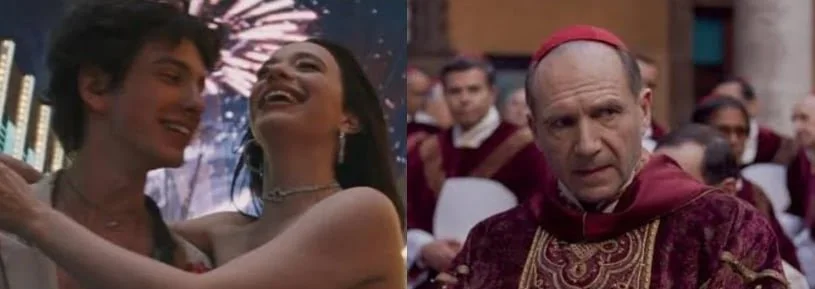
Director Dorothy Arzner’s Dance, Girl, Dance is a feminist narrative, about women in a male-dominated society, made in male-dominated film industry. It encompasses ideas and a language that was well ahead of its time & although the film is conventional, one cannot help but notice the importance this movie has had on an audience that was ignorant to the rights a woman should have. In fact, I took Maureen O’Hara’s Burlesque-hall speech to a packed audience of hollering men as a brave indictment and condemnation of a male dominated society that hadn’t totally advanced in Woman’s rights issues. Arzner’s camera focuses on the faces in the crowd, astonished by the display of courage Ohara’s Judy O’Brien puts forth with her case. It’s a stunning scene that stands up in a film that I admired more than liked.
Arzner is not only condemning the actions of the people on screen but also that of the audience watching her film. I truly believe that to make a film such as this one in 1940 must have taken a lot of backing from producers, then again the message is subtle and never entirely drawn out. Arzner doesn’t mean to give a lesson and just lets her characters do the talking for a change. I loved the way the film’s conventional narrative took on ballsy, important issues of the era. Lucille Ball’s Bubbles/Tiger Lilly gets fame and fortune by playing the whore, whereas Ohara’s good girl Judy struggles to find a place in a world dominated by men and those that want their women in scantily clad clothes & acting dumb on stage. The latter-day acclaim this film has won in its advanced feminist angles is reminiscent of Douglas Sirk’s 1950’s melodramas, with their dark messages hidden underneath glossy colors and characters that are more than meets the eye.
However, hidden messages notwithstanding, Arzner’s film is conventionally made and not entirely essential. The problem I have is that Arzner’s films—at least those I’ve seen—simply aren’t anything to get excited about. There’s always something interesting to catch or glimpse at, but stylistically, she has never been someone to brag home about. Dance, Girl, Dance started out strong but quickly became routine as it went along in its “girl tries to make it big in the city” conventions. I appreciated what she was trying to convey and the walls she was trying to break in her feminist themes but one comes out of the film thinking more about the layed out groundwork & themes than the actual story. As a piece of Hollywood history, it’s a real beauty but as a source of entertainment I’ve seen much better.
Arzner is not only condemning the actions of the people on screen but also that of the audience watching her film. I truly believe that to make a film such as this one in 1940 must have taken a lot of backing from producers, then again the message is subtle and never entirely drawn out. Arzner doesn’t mean to give a lesson and just lets her characters do the talking for a change. I loved the way the film’s conventional narrative took on ballsy, important issues of the era. Lucille Ball’s Bubbles/Tiger Lilly gets fame and fortune by playing the whore, whereas Ohara’s good girl Judy struggles to find a place in a world dominated by men and those that want their women in scantily clad clothes & acting dumb on stage. The latter-day acclaim this film has won in its advanced feminist angles is reminiscent of Douglas Sirk’s 1950’s melodramas, with their dark messages hidden underneath glossy colors and characters that are more than meets the eye.
However, hidden messages notwithstanding, Arzner’s film is conventionally made and not entirely essential. The problem I have is that Arzner’s films—at least those I’ve seen—simply aren’t anything to get excited about. There’s always something interesting to catch or glimpse at, but stylistically, she has never been someone to brag home about. Dance, Girl, Dance started out strong but quickly became routine as it went along in its “girl tries to make it big in the city” conventions. I appreciated what she was trying to convey and the walls she was trying to break in her feminist themes but one comes out of the film thinking more about the layed out groundwork & themes than the actual story. As a piece of Hollywood history, it’s a real beauty but as a source of entertainment I’ve seen much better.




